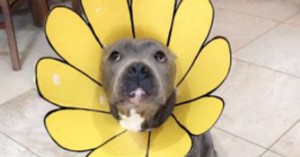Happy International Women’s Day! To celebrate this momentous day, we are going to discuss a topic that involves those female pets out there: Spaying. There is so much information regarding altering your pets and whether it is a positive or negative, so we are going to set the record straight! If you adopted your pet from a shelter, there’s a 99.9% chance that the shelter spayed them before finalizing the adoption. Most shelters have alteration policies to essentially lessen the number of homeless pets that come through their doors, and thus lower euthanasia rates. However, if you got your cat/dog from a breeder, or a pet store, the choice is up to you.
Spaying your cat or dog (or even rabbits) is healthier for them in the long run. Animals who remain unaltered have a greater chance of contracting uterine infections, and developing malignant tumors. Mammary tumors are said to be more prevalent in non-spayed females. They are cancerous in about 50 percent of dogs, and 90 percent of cats. These tumors also often go unnoticed until very late, and even when tumors are identified, can result in the animal requiring dangerous surgical procedures. Talk with your veterinarian about the proper timing and best age for spaying.
Spaying your kitty or puppy can also significantly reduce behavioral issues. Cats who spray often do so because they are in heat and marking. Female cats usually go into heat for about 4-5 days every three weeks during breeding season – that’s a lot of time to be living with a cat who is uncomfortably yowling and urinating around the house! For those of you unfamiliar with unaltered female dogs, they actually have menstrual cycles! This means that your pup will be bleeding, and licking to keep themselves clean, and should always have a diaper on. This is inconvenient, uncomfortable, and avoidable!
If you are not planning on breeding your cat or dog, spaying is the way to go. An unplanned litter of any type of pet is expensive. The materials required to care for a litter of kittens or puppies are extensive and involved. Breeders need the proper resources and access to emergency veterinary care, should mama or puppies begin to develop health concerns. They also need the knowledge-base to be able to provide supportive care for neonatal animals, just in case mama is unable to care for her babies for whatever reason.
Puppies and Kittens are generally ready for their alteration surgeries after a few months if they are healthy and developing normally. If you are bringing a new kitten/puppy into your home, and have no plans to breed them, speak to your vet about alteration timelines. You’ll have a healthier, better behaved, happier pet!
Click the link below to read more about altering your cat or dog:
https://www.aspca.org/pet-care/general-pet-care/spayneuter-your-pet








